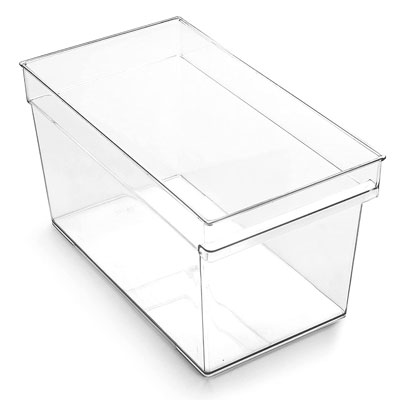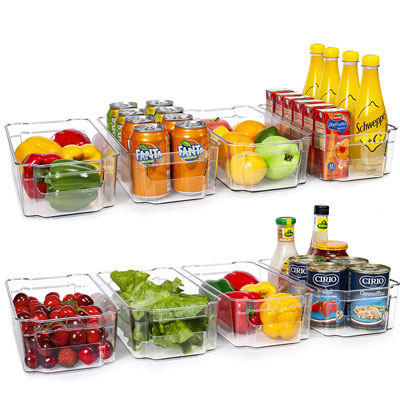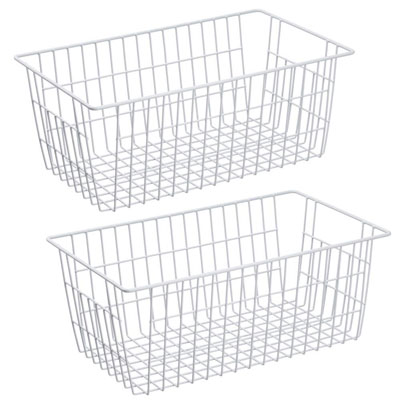7 things you should never store in the freezer, according to pro chefs
While it might seem a good idea, these foods will have an altered texture when reheated, and won't be nearly as appealing


Design expertise in your inbox – from inspiring decorating ideas and beautiful celebrity homes to practical gardening advice and shopping round-ups.
You are now subscribed
Your newsletter sign-up was successful
Want to add more newsletters?

Twice a week
Homes&Gardens
The ultimate interior design resource from the world's leading experts - discover inspiring decorating ideas, color scheming know-how, garden inspiration and shopping expertise.

Once a week
In The Loop from Next In Design
Members of the Next in Design Circle will receive In the Loop, our weekly email filled with trade news, names to know and spotlight moments. Together we’re building a brighter design future.

Twice a week
Cucina
Whether you’re passionate about hosting exquisite dinners, experimenting with culinary trends, or perfecting your kitchen's design with timeless elegance and innovative functionality, this newsletter is here to inspire
We all go in phases with how we cook and eat, but having a supply of batch-cooked dinners (or emergency midnight nibbles) is always a smart move. Using and organizing a chest freezer efficiently is an excellent way to cut down on food waste while saving you time with meals that are ready to be reheated for those evenings you're this close to ordering a take-out pizza.
As with organizing a refrigerator and organizing a pantry, there are a few items not to store in the freezer, no matter how tempting it might be.
We asked chefs what they wouldn't recommend putting in your ice box, and what to do instead.
Items not to store in the freezer
A surprising number of foods can be frozen, and it depends on how you'll be cooking them once defrosted. Melanie Underwood points out, for example, that fried foods can get soggy in the freezer, but if you reheat them in a cast iron skillet or one of the best air fryers, they will actually be just as crispy as when freshly fried.
Here's a list of items experts don't recommend freezing, and why.
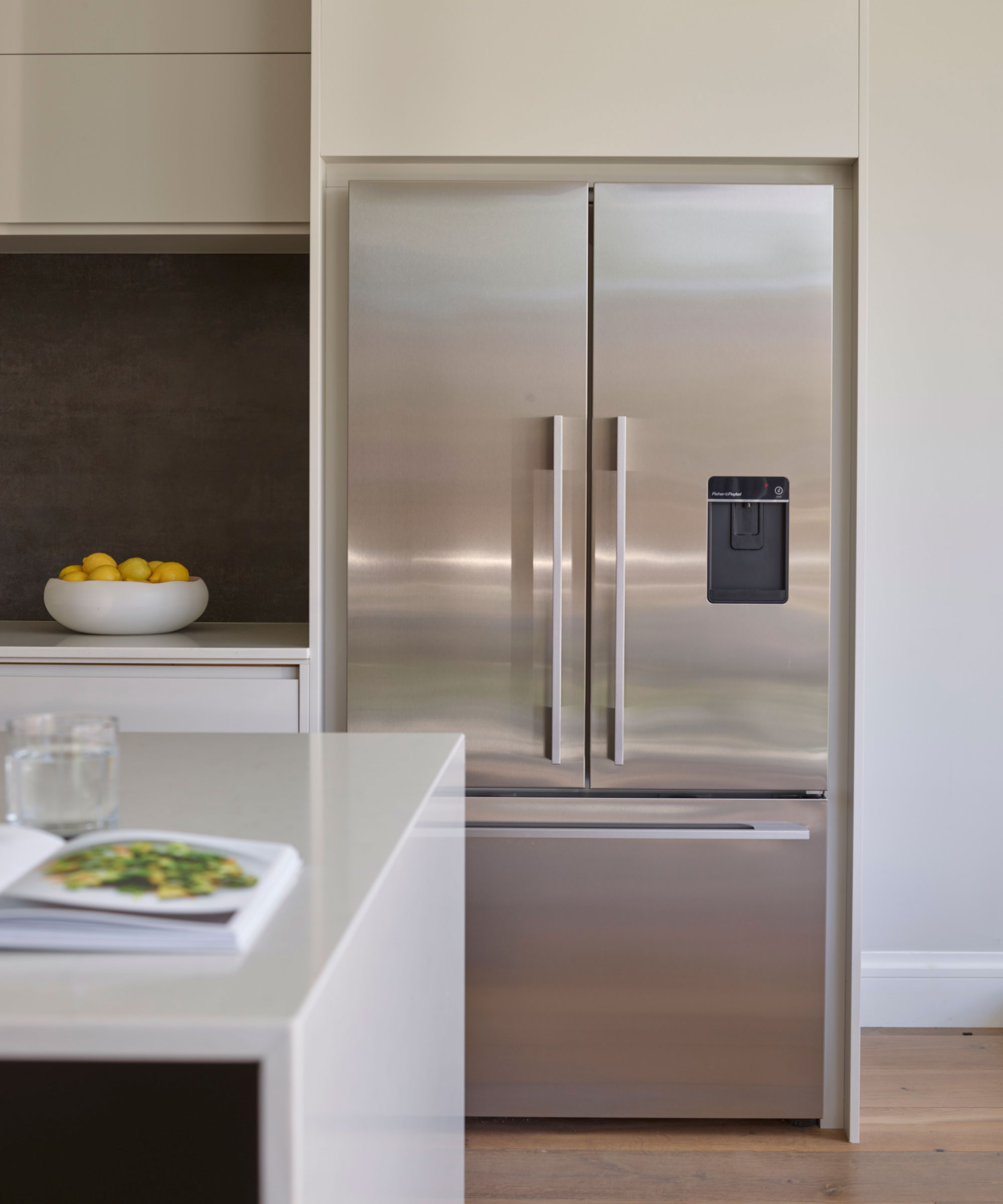
1. Leafy greens and vegetables
Chef Melanie Underwood is the owner of Gather Culinary in Westchester County NY. She argues that there are actually very few foods that you cannot freeze, and that it all comes down to what you plan on doing with them.
For example, many foods become watery or separate when defrosted. She says leafy greens and vegetables such as romaine, spinach, kale, celery, and cucumbers that are high in water content don’t freeze well if you want to use them in a salad, but they are great when in smoothies using your best blender.
Design expertise in your inbox – from inspiring decorating ideas and beautiful celebrity homes to practical gardening advice and shopping round-ups.
'Onions and cabbage which become very watery when frozen and again, not great for eating raw, are incredible if you caramelize them. In fact, they are easier to cook because of the extra water from freezing,' she adds.

Melanie Underwood is a chef from Loudoun County, Virginia, who teaches and host culinary retreats and camps. She opened The Four Seasons Hotel in New York and worked at The Plaza Hotel, Torre di Pisa, and other celebrated New York City restaurants.
2. Milk and cream

Merissa Alink runs a blog called Little House Living and owns a bulk foods company. 'Products like milk and sour cream may not have the same texture when thawed, which may not be appealing,' she begins. 'The food may also lose some of its cooking abilities, such as heavy cream.'
You can still use frozen heavy cream in soups and baking, but you won't be able to whip it up into whipped cream after it has been frozen.
Speaking from experience, she says that most items that say 'do not freeze' aren't saying it because of a safety issue but because of a quality issue.
3. Food you've already defrosted
Marjory Pilley is the former owner of two make-ahead (and freeze) meal assembly stores and the founder of The Dinner-Mom, a recipe and meal planning resource website.
'My top suggestion is don't refreeze food that you have defrosted unless you cook it first,' says Marjory. 'For example, if you thought that you'd like to make hamburgers, but ended up going out instead, cook the ground beef into crumbles and use it for another purpose.
She explains that the cells in food expand and contract during the freezing and defrosting process and will be less flavorful if refrozen, and the texture is slightly altered. 'Also, food that was not properly defrosted in the first place or that stayed in the refrigerator too long will have bacterial growth that will stay with the food during the re-freezing process.'
Marjory recommends storing food in resealable freezer bags, at Walmart, removing excess air and labeling them.
4. Glass bottles
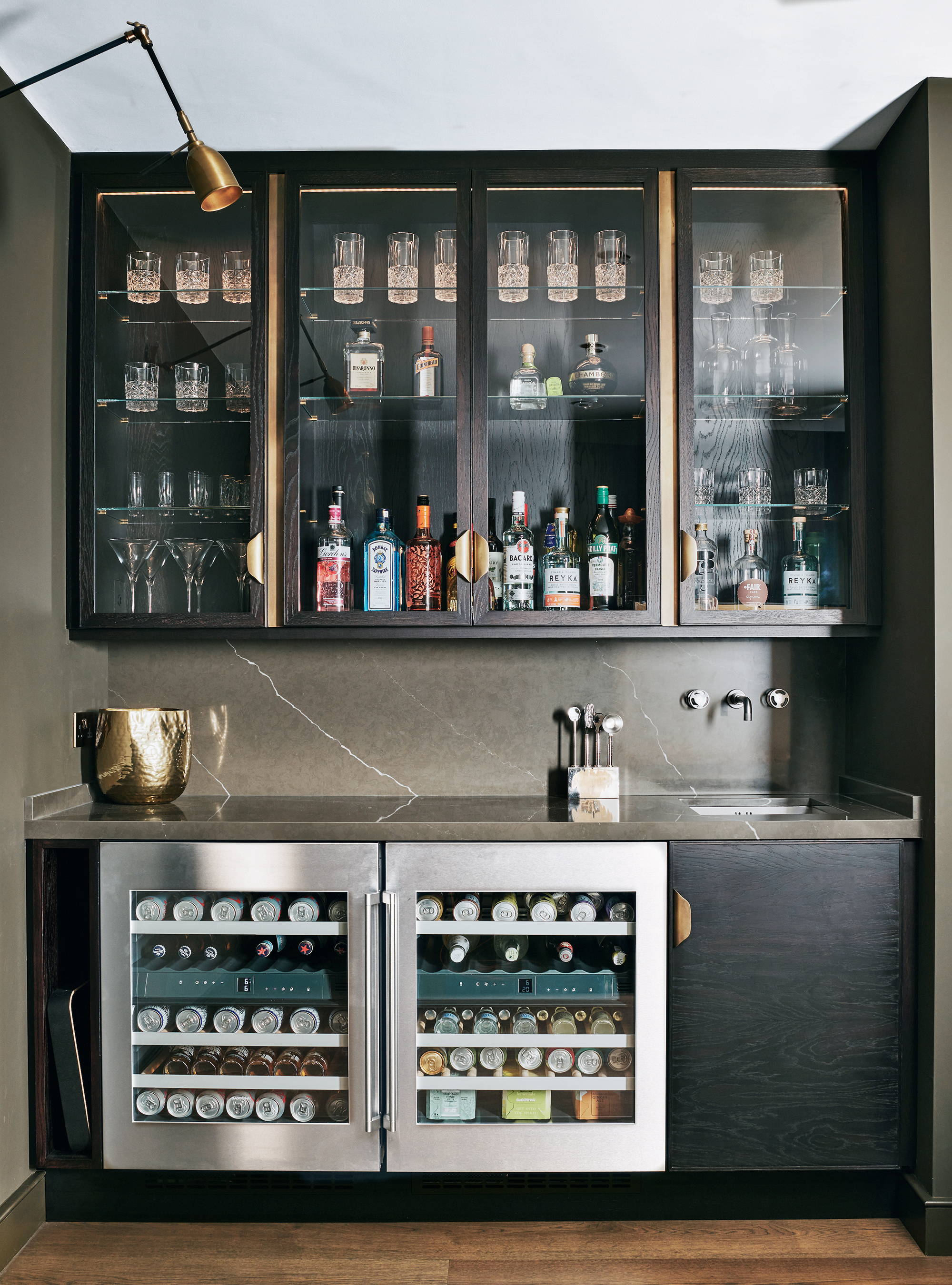
As we all learned at school, liquids will expand in the freezer. So any drinks in glass containers should be stored in the refrigerator, otherwise, the liquid may burst out of its container, causing glass to break or shatter.
Merissa says that some items might have the 'not safe to freeze' label simply because the container they are sold in is not meant for the freezer. If your freezer has developed a layer of frost, it's a sure sign you need to defrost the freezer, which will keep it working efficiently.
5. Eggs

Eggs don't do well in the freezer either, says Hara Lessandra, a kitchen designer from Untamed Creatures. 'They can actually freeze solid and then crack when you try to use them, so it's not worth the risk,' she says. 'If you want to extend their shelf life, keep them in the fridge instead.'
6. Custard or gravy
'I also wouldn’t freeze any custard or gravy that is made with cornstarch or gelatin; as it becomes watery and separates when it is defrosted, which changes the taste, texture, and appearance,' says Melanie Underwood.
7. Cheese
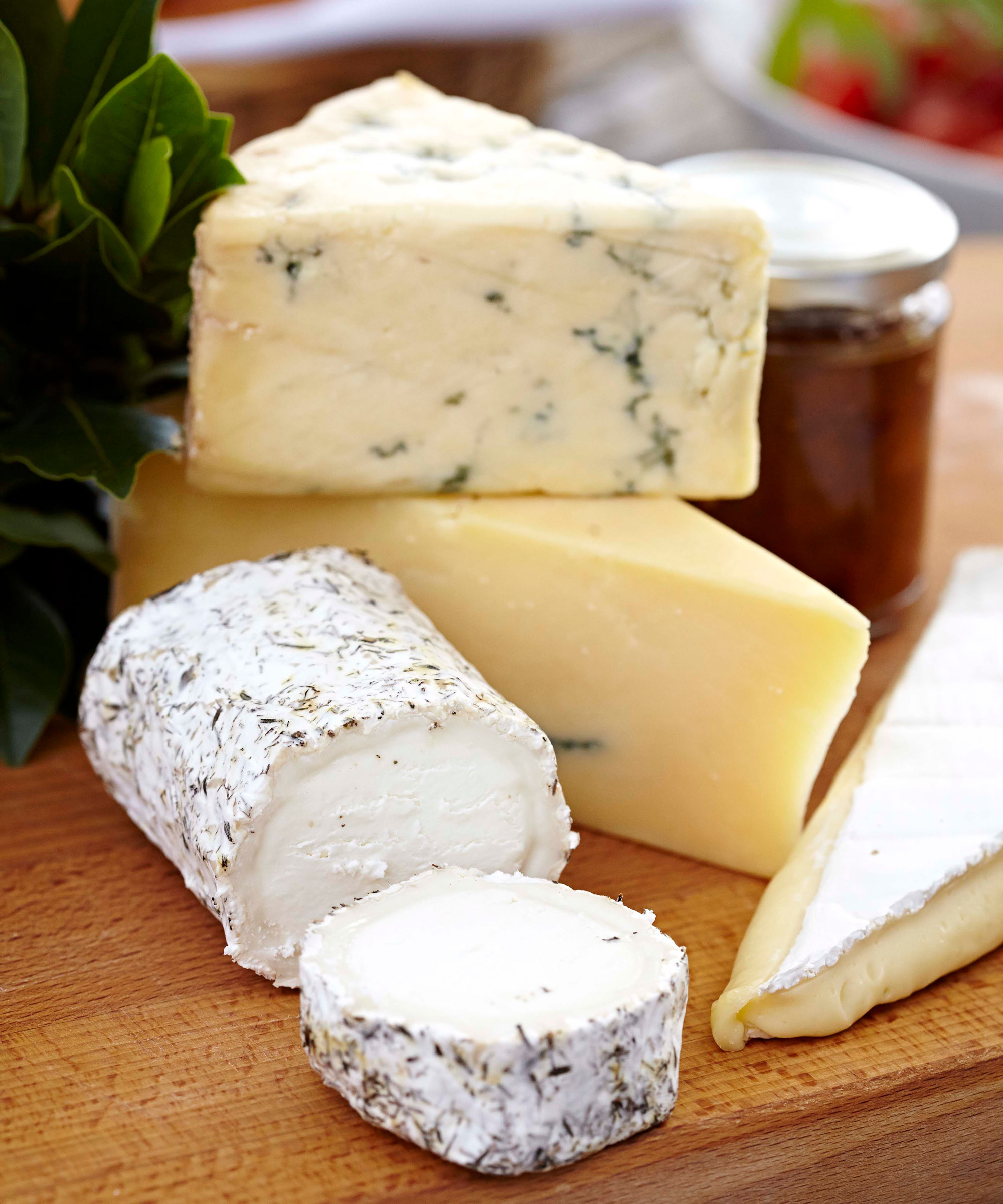
If you've doubled up on Emmental slices or rounds of camembert and are wondering about storing extras in the freezer, this could lead to crumbly, dry cheese that's lost all of its flavor. Hara says if you need to store cheese for a long period of time, it's best to keep it in the fridge or a cool pantry.
FAQs
Is it safe to freeze food that says 'not safe for freezing?'
Ronald Smith is a dietician from EatDrinkBinge.com. He says most people have experienced the occasional freezer mishap. 'You find a forgotten container of ice cream that's been in the freezer for so long it's turned into a brick, or a package of meat that's been freezer-burned beyond recognition.
'But what about food that's labeled "not safe for freezing?" Is it really unsafe to freeze that food, or is it just not as good as it could be? The answer is a bit of both,' he says.
'While it's technically safe to freeze most food, including food that's labeled "not safe for freezing," the quality of that food will generally decline. So if you're looking to preserve the quality of your food, it's best to avoid freezing it.'
How do you prevent freezer burn?
Melanie Underwood says that a good way to freeze foods is to place them on a sheet tray, allow them to completely freeze, and then take them off and ideally vacuum seal them.
'If you don't have a vacuum sealer, you can put them in a ziploc bag and get as much of the air out as possible. This will prevent freezer burn, which is when you see the formation of ice crystals on the exterior of food which will change the texture and taste of food.'

Millie is a freelance writer and qualified interior designer based in Sheffield. She has many years of experience in the world of content and marketing, and previously worked as the head of Solved at Homes & Gardens. Before that, she worked in SEO at News UK in London and New York. She has a first-class degree in French and Italian from UCL and loves to weave decor into her home that reminds her of time spent living and studying in Bologna. Millie believes a clutter-free space that you love coming home every day is the best secret weapon for our well-being.
